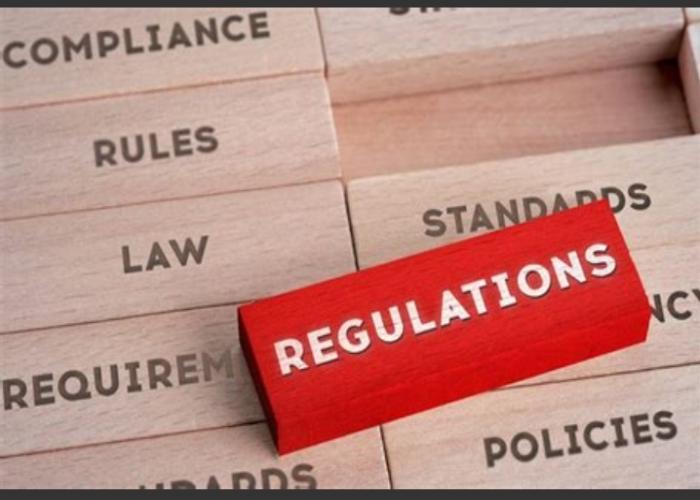Blog Detail
- Home
- Blog Detail
05 Feb, 2025
Regulatory Changes and Their Impact on the Casino Industry

Introduction
The casino industry is one of the most heavily regulated sectors in the world, with laws and policies constantly evolving to address new challenges. Governments and regulatory bodies frequently update their frameworks to ensure fair play, prevent fraud, curb problem gambling, and adapt to emerging technologies like cryptocurrency and AI.
As a result, casinos—both land-based and online—must continually adjust their operations to remain compliant while maintaining profitability. In this article, we’ll explore some of the most significant regulatory changes affecting the casino industry, their impact on operators and players, and what the future might hold for gaming regulation.
Major Regulatory Changes Affecting the Casino Industry
1. Stricter Licensing Requirements
Many jurisdictions have tightened their licensing requirements to ensure only reputable operators can run casinos. Regulatory bodies such as the UK Gambling Commission (UKGC), the Malta Gaming Authority (MGA), and the Nevada Gaming Control Board now impose stricter background checks, financial scrutiny, and operational guidelines for new and existing casinos.
Impact:
Harder for new operators to enter the market
Increased operational costs for compliance
Greater player confidence in licensed casinos
2. Enhanced Anti-Money Laundering (AML) Laws
Money laundering has long been a concern in the gambling sector, prompting regulators worldwide to impose stricter AML policies. Casinos are now required to conduct Know Your Customer (KYC) verification, monitor transactions for suspicious activity, and report large or unusual financial movements to authorities.
Impact:
Additional verification steps for players
Increased operational costs for casinos
Better protection against financial crimes
3. Responsible Gambling Measures
With concerns about gambling addiction on the rise, regulators are pushing for more robust responsible gambling policies. Many jurisdictions now require casinos to implement self-exclusion programs, deposit limits, reality checks, and AI-driven monitoring tools to detect problem gambling behavior.
Impact:
More tools to help players gamble responsibly
Casinos must allocate resources for compliance
Risk of penalties for non-compliant operators
4. Advertising and Marketing Restrictions
Governments are cracking down on aggressive casino marketing tactics, particularly in regions like the UK, Sweden, and Australia. Stricter regulations now limit the ways casinos can advertise, requiring transparency in bonus offers and restrictions on targeting vulnerable individuals (e.g., banning celebrity endorsements).
Impact:
Reduced exposure for new casinos
Increased compliance costs
Shift toward organic and responsible marketing strategies
5. Cryptocurrency and Blockchain Regulations
As more casinos integrate cryptocurrency for payments and rewards, regulators are working to establish clear guidelines. Some jurisdictions embrace crypto gambling with strict oversight, while others, like China, have banned it altogether.
Impact:
Casinos must comply with region-specific crypto laws
Growth of blockchain-based gaming platforms
Potential for increased transparency and security in transactions
6. Data Privacy and Cybersecurity Compliance
With online gambling booming, casinos collect massive amounts of personal and financial data. Regulations such as the General Data Protection Regulation (GDPR) in Europe and similar laws in the U.S. and Asia demand that operators secure customer data, prevent breaches, and allow users to manage their personal information.
Impact:
Increased investment in cybersecurity
Risk of heavy fines for non-compliance
Greater trust in licensed online casinos
How Regulatory Changes Affect Casinos and Players
For Casinos:
Higher Compliance Costs – Casinos must invest more in security, KYC processes, and responsible gambling tools.
Market Entry Barriers – Stricter licensing makes it harder for new operators to compete.
Changes in Marketing Strategies – Operators must rethink how they attract and retain players while staying compliant.
Increased Player Trust – More regulations mean safer gaming environments, leading to better customer retention.
For Players:
Better Protection – Stricter AML laws, responsible gambling tools, and cybersecurity measures enhance safety.
More Verification Steps – Players may need to complete additional identity verification before gambling.
More Transparent Gaming – Rules on fair play and marketing reduce deceptive practices.
Limited Access in Some Regions – Regulatory changes may restrict online gambling access in certain countries.
The Future of Casino Regulation
As technology advances and gambling markets expand, we can expect further regulatory changes. Some potential developments include:
1. AI-Powered Regulation
Governments may use artificial intelligence to track gambling patterns, detect fraud, and enforce compliance more efficiently.
2. Expansion of Cryptocurrency Gambling Laws
With crypto gambling growing, more countries may regulate it rather than banning it outright, ensuring safer transactions for players.
3. Stronger Consumer Protection Laws
Expect tighter restrictions on loot boxes, in-game gambling, and microtransactions, especially in online and mobile gaming.
4. Global Standardization of Regulations
As online casinos operate internationally, there may be efforts to harmonize gambling laws across multiple jurisdictions for smoother compliance.
Conclusion
Regulatory changes play a critical role in shaping the casino industry. While stricter laws create compliance challenges for operators, they ultimately lead to a safer and more transparent gambling environment for players. Casinos that adapt quickly and embrace responsible gaming, cybersecurity, and fair marketing practices will thrive in this evolving landscape.
As the industry continues to grow, staying informed about regulatory updates is crucial for both players and casino operators. Whether you're a player looking for a secure gaming experience or an operator navigating complex compliance laws, understanding these changes ensures a fair and responsible gambling ecosystem for all.


